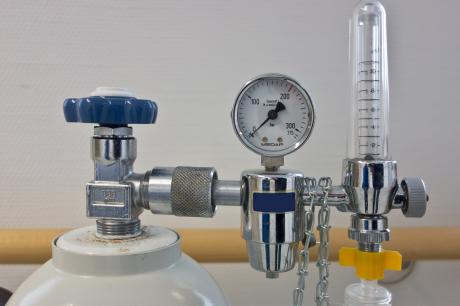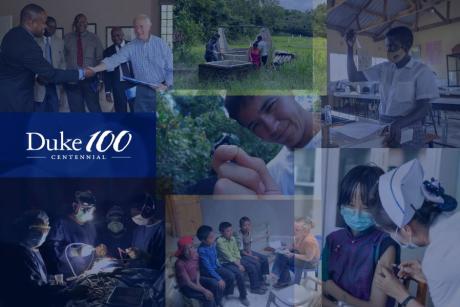
A household in one of the villages of Naama Parish, in Mityana District, Uganda.
Published July 19, 2018 under Voices of DGHI
By Tiff Jiang, rising junior global health and public policy major
I was talking to a man I work with as we walked through one of the fourteen villages of Naama Parish, Mityana District, Uganda. We had just finished conducting our pre-intervention survey surrounding households’ water storage practices as part of a pilot project to improve water quality.
I often see my co-worker engaged in lighthearted banter before translating and interpreting survey questions to the local language, Luganda. Usually I can use context clues to guess what the conversation is about—chuckles about my Luganda name, Nasuuna, or interest in the topic of amazzi (water). But sometimes, the clues aren’t as obvious. In these cases, I wait until after the survey to catch up on the conversation that took place.
This was one of those times. A few minutes earlier, my co-worker had offered our participant’s six year old grandson a small bill, and the boy walked off, returning minutes later with crackers. The grandmother thanked my co-worker and looked at the young boy with loving eyes as he happily crunched on the snack. Though I knew this was just an everyday moment for the woman and her grandson, I felt compelled to tell my co-worker about how I admired their tender relationship. I asked if he knew the boy.
He smiled and said, “Oh, Nasuuna, did I never tell you? I adopted him.” I was confused—as far as I knew, this man lived an hour away and had no children. “I met him one day while conducting a survey. His grandmother was a participant of the Duke student who came two years ago, and told us his story.”
The boy’s father passed away from HIV five years ago and his mother is currently living with HIV. His grandmother is his caretaker, but at her age, she has difficulty working. Their home is owned by the local church, which sponsors basic living costs. Though my co-worker may not have adopted the boy in the Western sense of the word, he has been paying for the boy’s clothing, school fees and supplies for the past two years. He sends money through a boda boda driver when he is unable to make the trip to Naama.
Without sponsorship, the boy would have had to drop out of school. Forgoing a basic education, he would have lacked the necessarily skills to have career options and likely engaged in dangerous work or risky behavior—becoming predisposed to a host of poor health and life outcomes.
While my co-worker’s generosity is completely separate from the research and service our team has conducted, the situation feels metaphoric of my time here. Our team cannot claim responsibility for the immeasurable impact of my co-worker’s sponsorship on this young boy, but the two would not have met if it weren’t for the Student Research Training (SRT) program that has been in place here for the past ten years. Likewise, as SRT team members, we may not be direct benefactors to our participants, but instead, we connect them with information and help build relationships that may not have existed otherwise.
We have tried our best to make our work benefit the community. Yet questions—completely valid ones—arise about how we are doing that. How does a survey about water storage and boiling practices improve a participant’s health? How do I justify asking someone to sacrifice their time in the field to speak with me, a stranger who simply walked up to their house?
Our hundreds of participants, dozens of Volunteer Health Teams and community partners (NGOs, the District Health Office, local hospital and health centers) all expect, and deserve, tangible results from the work that we are doing. In this process of data collection, I have realized that although research often doesn’t generate short-term benefits, it’s an invaluable component of improving a community’s health. It is a slow process and requires sustained effort.
Our hope is to discover valuable information and, while we try to directly impact the community ourselves, it’s also our responsibility to share the knowledge we gain through the study. Government workers, health professionals and Volunteer Health Teams may not have the time or resources to conduct their own research. Because we do have the time and some of the resources, the most sustainable service we can provide is to take advantage of this unique position and work in between that gap.
I admit that my surveys don’t provide the same impact that a water filter would—but their results may help connect NGOs with school teachers to educate children on ways to prevent water contamination themselves. The coliform levels I have tested for may not directly decrease incidence of diarrheal diseases—but they may help demonstrate the need to address this issue in Naama and compel donors to invest accordingly.
What my co-worker has done for this boy directly influences the course of the boy’s life. By helping to bring the two of them together, the SRT team has indirectly contributed to this impact, much like we hope our research will—to provide data that will help empower local partners to produce direct benefits in their community.


